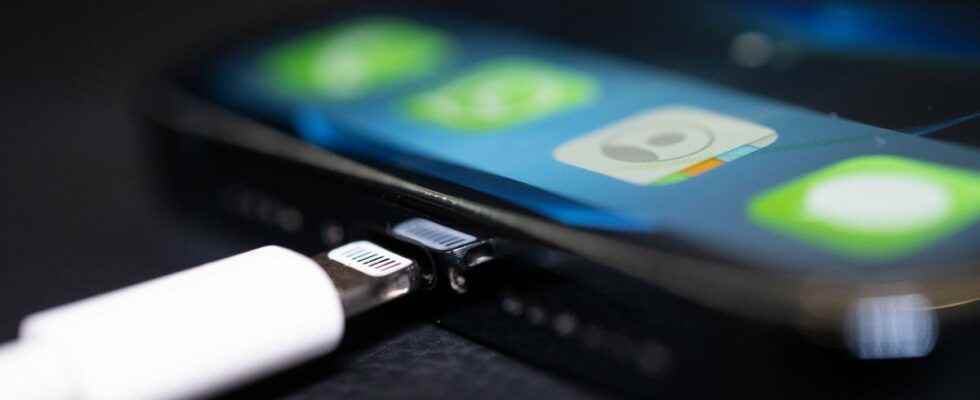It was no longer an open secret and Apple has just confirmed it: the iPhone will indeed switch to USB-C. There were many rumors of an iPhone 15 coming with universal connectivity, but this time it was Greg Joswiak, Apple’s marketing manager, who brought up the subject directly.
An EU decision that is too “binding”
Interviewed by journalist Joanna Stern during a conference organized by the wall street journalthe man explained that Apple was going “obviously have to obey” to the European constraints that will force smartphone manufacturers to switch to USB-C by 2024. Exit the Lightning port which recently celebrated its 10th anniversary, the iPhone will indeed switch to USB-C .
The official, on the other hand, is not particularly happy to have his hand forced by the European Union. “It would have been better for the environment and for our customers if a government were not so restrictive“Explains Joswiak, taking the example of the micro-USB connector. For the Apple marketing guru, if the European Union had imposed a universal charger 10 years ago, all our phones would have ended up with micro-USB connectors rather than giving way to the innovation that gave birth to Lightning and USB-C.
If the historical chronology gives reason to the person in charge, the Parliament did indeed try to impose a universal charger as early as 2013, the technical reasoning is for its part somewhat dubious: the micro-USB port has never been so widely adopted as USB-C. Computers have never used it, unlike the current connectors that are found today on smartphones, tablets, PCs and many other accessories. The old “universal” charger was also far more limited in its scalability than USB-C, which has been steadily improving for years.
The problem of electronic waste
During his speech, Greg Joswiak also evokes the problem of electronic waste, which the EU wants to settle by adopting a universal charger. According to him, more than a billion people are already equipped with Lightning cables and forcing manufacturers to switch to another connection could “disturb“consumers and”generate electronic waste“. On this too, the manager is right: the longer a cable is used, the lower its carbon footprint. But the switch to USB-C precisely makes it possible to no longer have to buy a cable and to use the charger for the computer you already have at home on your phone or tablet.The best way to reduce the amount of electronic waste is to buy as little electronics as possible.
According to Apple’s marketing manager, the decision to switch or not to USB-C should have been left to manufacturers and engineers, who would be best able to make the best possible technical choice. This very American vision of the market is no doubt slightly motivated by the fact that Lightning accessories bring big money to Apple and that adopting USB-C will mechanically lose the control that the brand exercises over its galaxy of gadgets compatible with the iPhone. .
